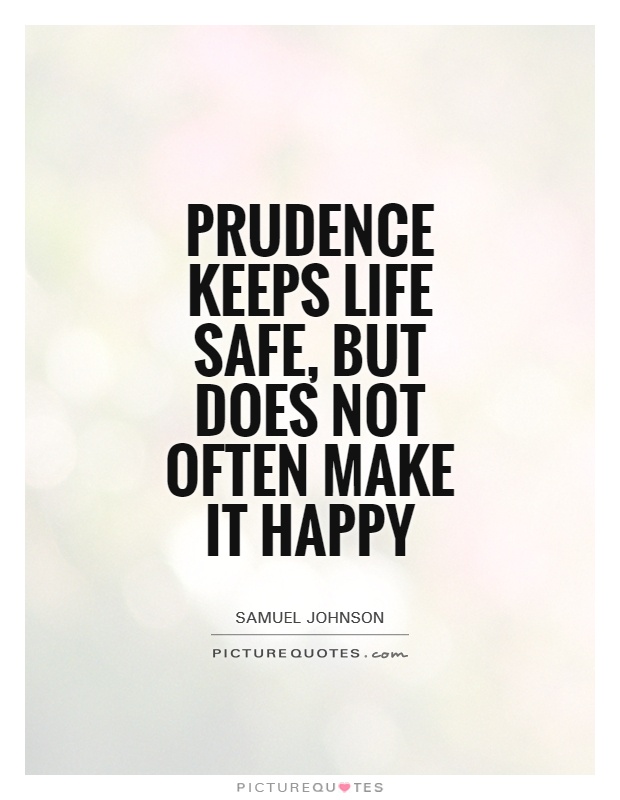Prudence keeps life safe, but does not often make it happy

Prudence keeps life safe, but does not often make it happy
Samuel Johnson, the renowned English writer and lexicographer, was a firm believer in the importance of prudence in one's life. He understood that being cautious and thoughtful in decision-making could help prevent unnecessary risks and pitfalls. However, Johnson also recognized that excessive prudence could lead to a life devoid of excitement and joy.In his famous work, "The Rambler," Johnson explores the concept of prudence and its impact on happiness. He argues that while prudence may keep one safe from harm, it can also stifle creativity, spontaneity, and the pursuit of happiness. Johnson believed that a life lived solely in the pursuit of safety and security was a life half-lived.
Johnson's own life was a testament to the delicate balance between prudence and happiness. He faced numerous challenges and setbacks throughout his life, including poverty, illness, and personal loss. Yet, he also experienced moments of great joy and success, such as the publication of his groundbreaking dictionary and the establishment of his literary reputation.
Johnson's views on prudence and happiness were shaped by his own experiences and observations of the world around him. He understood that life was full of uncertainties and risks, and that prudence was necessary to navigate these challenges. However, he also believed that taking calculated risks and embracing opportunities for growth and fulfillment were essential for a truly fulfilling life.












 Friendship Quotes
Friendship Quotes Love Quotes
Love Quotes Life Quotes
Life Quotes Funny Quotes
Funny Quotes Motivational Quotes
Motivational Quotes Inspirational Quotes
Inspirational Quotes